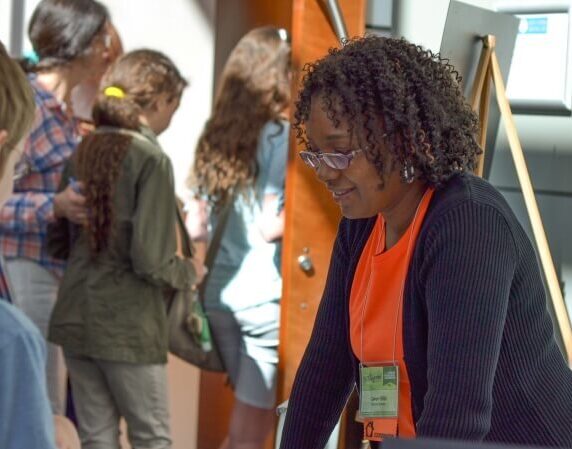SAVE THE DATE!
43rd Annual Virginia
Homeschool Convention
June 4-6, 2026
The Most Important Work You'll Ever Do

Teaching our children and helping them be all they can be is a complex, amazing journey filled with joy and love!
Do you wonder if you are doing the right thing? Doubt your own abilities? Or perhaps you’re still deciding whether you want to homeschool.
You are not alone.
Held each year in June at the Greater Richmond Convention Center, HEAV’s Annual Virginia Homeschool Convention is one of the largest, most vibrant homeschool conventions in the nation. The three-day event brings together authentic speakers with change-your-life messages, and exhibitors with passion and knowledge to equip and encourage you with ideas, strategies, and vision.
Join us and thousands of like-minded homeschooling families this year.
Some Video Highlights from 2025…
And Pictures..
And Pictures..
Get All the Latest Convention News!
Convention Updates Delivered to Your Inbox
Get connected below, and be one of the first to know about the latest 2025 keynotes, speakers, events, exhibitors and programs—ALL the convention news!
Can’t see the form? Click here.
Not sure where to begin? Get a simple plan.
Homeschooling is a wonderful, exhilarating journey, and the HEAV homeschool convention is an invaluable–and BIG–resource for all homeschoolers. Now, simplify your decision-making BEFORE you come to the convention. Whether you are just getting started, in the middle of your journey, or approaching those high school years, you can make the connections and find the resources you need to take the next step. Choose your starting point!
Not a Homeschooling Parent?
Yes, the convention is for you!
Whether you are just curious if homeschooling might be right for you or if you are ready to take the plunge into this exhilarating lifestyle, the convention has SO much to offer.
- FREE! attendance for first-time parents of just preschoolers
- FREE! attendance for non-homeschooling grandparents
- FREE! attendance for first time OR non-homeschooling pastors
- FREE! “How-to-Begin-Homeschooling” workshops
- Special-Needs Conference on Thursday
- Huge used curriculum & supply sale
- Children’s Program (additional fee) available all 3 days so you can explore the convention!
- Visit the 130+ exhibitor hall to
- meet vendors personally and ask questions
- purchase homeschool supplies and lifestyle items
- share a prayer need
- enjoy the social rest area
- Bring a friend with you
- Experience three life-changing days
- Be empowered to take the next steps
- You don’t have to go it alone – HEAV is here!
So Much Value
You Can’t Afford to Miss It!
Relevant Workshops
From meaningful heart messages to no-nonsense tips on every imaginable homeschool topic
Winning Speakers
Carefully selected from dozens of encouraging and authentic homeschool presenters
Limitless Shopping
Books, curricula, games, puzzles, media, kits, projects, and hands-on activities for all ages.
Road Map for YOU
Plan for your next step, whether you are just beginning, on the road, or getting ready to finish (coming soon)
Huge Exhibit Hall
One of the Largest Curriculum Fairs in the Nation!
3 Life-Changing Days!
- Recharge with encouraging speakers
- Discover new curricula
- Get creative ideas
- Connect with fellow homeschoolers
- Engage with amazing exhibitors
- Renew & recharge for a new school year

All Day Thursday:
Special-Needs Conference
Rock Your Homeschool Journey!
Experience the Convention
Real fellowship, expert information, and a multitude of carefully selected speakers and resources.
Get Equipped & Encouraged
Discover your next creative idea, explore new curricula, and make connections that last a lifetime.
Homeschool with Confidence
Return home and walk your homeschool journey with renewed energy, vision, and purpose!
FREE:
First-Time Parents
of Just Preschoolers
Free First-Time Parents of Just Preschoolers
If you’ve never been to the HEAV convention and your eldest child is aged four or under, you can come to the entire convention–FREE! Just apply for your discount code and use it to register online.
To Qualify:
- This must be your first HEAV Virginia Homeschool Convention
- All of your children must be aged four or under.
Huge!
Used Curriculum Sale
Get homeschool resources at a bargain
Sell those items you don’t need.
What Others Have Said…




Can’t wait? Get the help you need now!
Interested in Speaking and/or Exhibiting?
Information on Becoming a Speaker
Information on Becoming an Exhibitor
Convention Sponsors
Many, many thanks to our convention sponsors!
They have invested heavily in homeschool families—in YOU—to help keep our convention prices as low as possible and support homeschooling in Virginia. Please join us in thanking them for their generosity!


